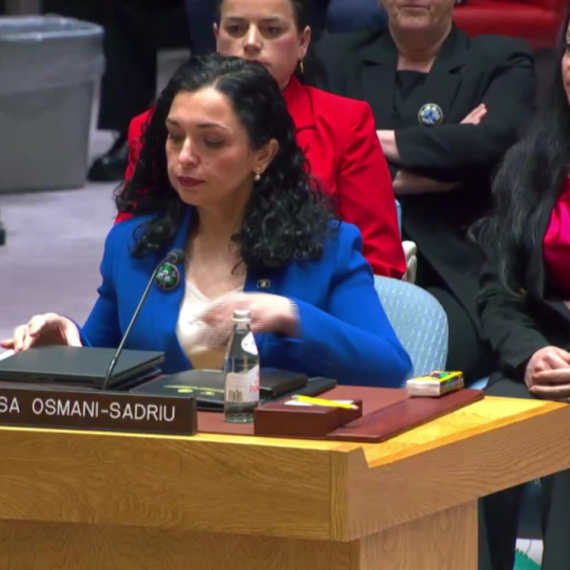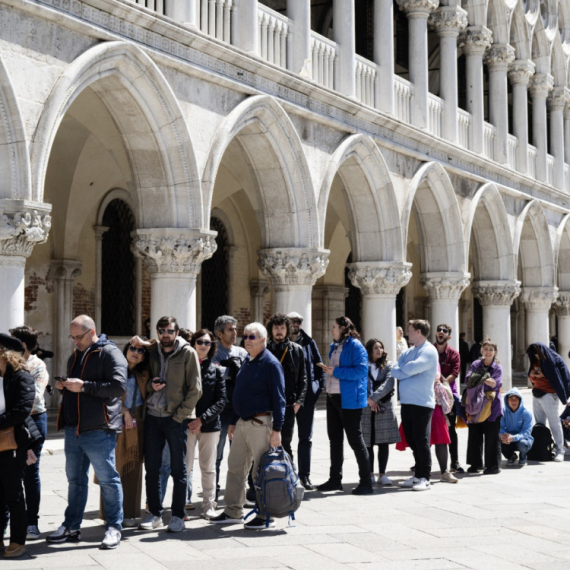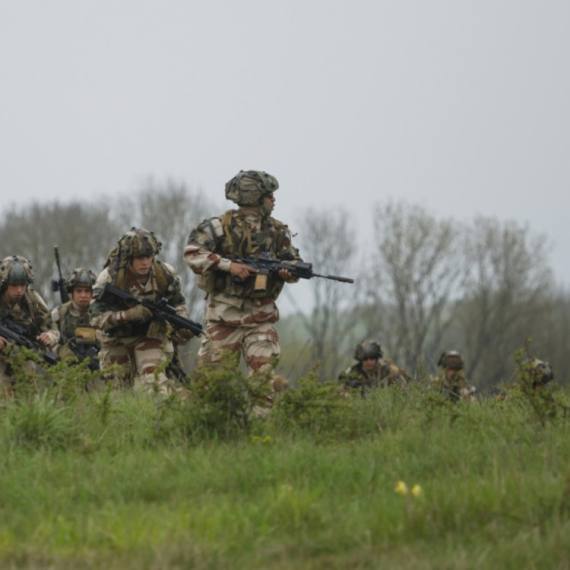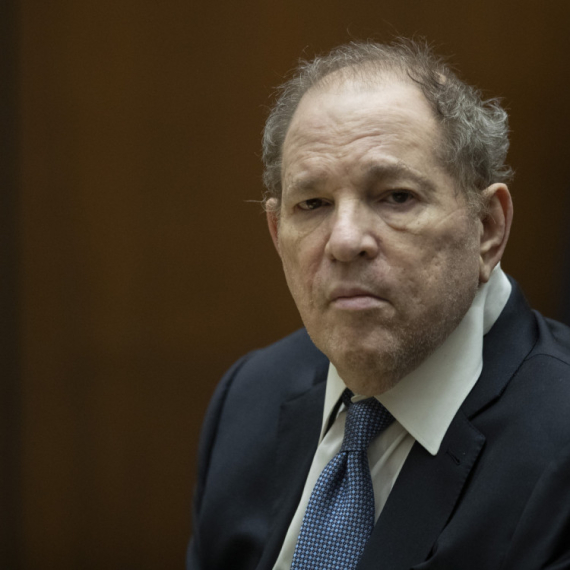Economy round table in Belgrade
A round-table discussion for government officials and members of the business community organized by the Economist Media Group is being held today in Belgrade.
Monday, 27.10.2008.
13:39

A round-table discussion for government officials and members of the business community organized by the Economist Media Group is being held today in Belgrade. The gathering, dubbed the Second Business Round Table, has Prime Minister Mirko Cvetkovic, Deputy Prime Ministers Ivica Dacic, Bozidar Djelic and Mladjan Dinkic, National Bank of Serbia Governor Radovan Jelasic and a large number of ministers, bankers and businesspeople in attendance. Economy round table in Belgrade Cvetkovic said in his opening address that Serbia will feel the effect of the international financial crisis in 2009 and that it will be felt the most in the GDP, which will be decreased to four percent. “We consider this a recession because Serbia has had a growth of about seven percent in the GDP over the last several years,” Cvetkovic said. He added that there will have to be a restrictive fiscal policy implemented the next year, which means that attention will have to be paid to decreasing public spending. Cvetkovic said that in the 2009 budget, funds will be set aside for emergency interventions in the banking system. Dinkic told the round table that privatization and reforms in Serbia will continue despite the crisis, adding that a tender will be announced next week to find a strategic partner for RTB Bor copper mines and smelter, and for an advisor for the privatization of Galenika pharmaceutical company. He said that there will be about ten tenders an 209 other auctions held before the end of the year. Dinkic added that Serbia has a chance of keeping a strong industrial growth despite the recessions, but that banking measures and macro-economic stability will not be enough to achieve this. Serbia has already received funds for capital projects from international financial institutions under favorable conditions, the minister revealed. Djelic addressed the gathering to say that Serbia can use the international crisis to gain a position in the world market. He said that Serbia is intent on integration into the European Union and that a new Serbian mission to the EU will open soon – "the Serbia House" in Brussels. Djelic said that the liberalization of the visa regime is important for Serbia, adding that from November 3 in the country, and in Serbian diplomatic headquarters in Paris and Dusseldorf, only biometric passports will be issued. Jelasic said that Serbia still faces two challenges—inflation and current payment deficits, which will be harder to combat amid the globalfinancial crisis. The central bank chief said that the NBS will stick to its restrictive monetary policy, because the greatest threat to macro-economic stability – inflation – has yet to be put under control. He added that the turbulence on the international financial market will increase the value of the dinar in the banking sector. However, home currency-indexed loans will be cheaper only if inflation is lower, which will enable a decrease in the NBS key policy rate. As for the fiscal policy, the NBS governor said that everything that is being prepared for the 2009 budget “most be projected pessimistically”, explaining that it goes both for spending and income. Interior Minister and first Deputy PM Ivica Dacic stated that economic development is important for the security and stability of the country, and that Serbia must follow the EU roadmap in this area. He said that there is talk of creating a sector for the protection of Corridor 10 though Serbia which will deal with security, because along with the traffic problems on that highway, there are also problems related to crime. Dacic concluded that Serbia has good cooperation with police forces in the Western Balkans, reminding that an agreement on regional police cooperation was signed recently. The round table in Belgrade today (Tanjug)
Economy round table in Belgrade
Cvetković said in his opening address that Serbia will feel the effect of the international financial crisis in 2009 and that it will be felt the most in the GDP, which will be decreased to four percent.“We consider this a recession because Serbia has had a growth of about seven percent in the GDP over the last several years,” Cvetković said.
He added that there will have to be a restrictive fiscal policy implemented the next year, which means that attention will have to be paid to decreasing public spending.
Cvetković said that in the 2009 budget, funds will be set aside for emergency interventions in the banking system.
Dinkić told the round table that privatization and reforms in Serbia will continue despite the crisis, adding that a tender will be announced next week to find a strategic partner for RTB Bor copper mines and smelter, and for an advisor for the privatization of Galenika pharmaceutical company.
He said that there will be about ten tenders an 209 other auctions held before the end of the year.
Dinkić added that Serbia has a chance of keeping a strong industrial growth despite the recessions, but that banking measures and macro-economic stability will not be enough to achieve this.
Serbia has already received funds for capital projects from international financial institutions under favorable conditions, the minister revealed.
Đelić addressed the gathering to say that Serbia can use the international crisis to gain a position in the world market.
He said that Serbia is intent on integration into the European Union and that a new Serbian mission to the EU will open soon – "the Serbia House" in Brussels.
Đelić said that the liberalization of the visa regime is important for Serbia, adding that from November 3 in the country, and in Serbian diplomatic headquarters in Paris and Dusseldorf, only biometric passports will be issued.
Jelašić said that Serbia still faces two challenges—inflation and current payment deficits, which will be harder to combat amid the globalfinancial crisis.
The central bank chief said that the NBS will stick to its restrictive monetary policy, because the greatest threat to macro-economic stability – inflation – has yet to be put under control.
He added that the turbulence on the international financial market will increase the value of the dinar in the banking sector. However, home currency-indexed loans will be cheaper only if inflation is lower, which will enable a decrease in the NBS key policy rate.
As for the fiscal policy, the NBS governor said that everything that is being prepared for the 2009 budget “most be projected pessimistically”, explaining that it goes both for spending and income.
Interior Minister and first Deputy PM Ivica Dačić stated that economic development is important for the security and stability of the country, and that Serbia must follow the EU roadmap in this area.
He said that there is talk of creating a sector for the protection of Corridor 10 though Serbia which will deal with security, because along with the traffic problems on that highway, there are also problems related to crime.
Dačić concluded that Serbia has good cooperation with police forces in the Western Balkans, reminding that an agreement on regional police cooperation was signed recently.



























































Komentari 0